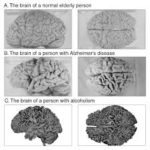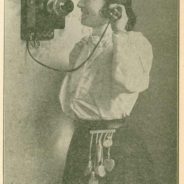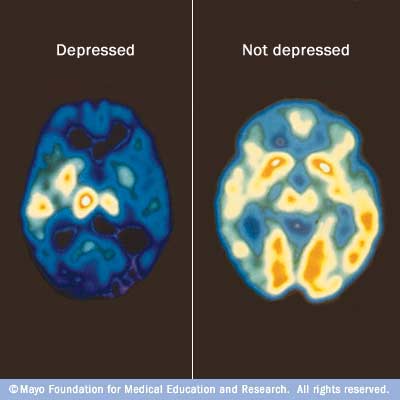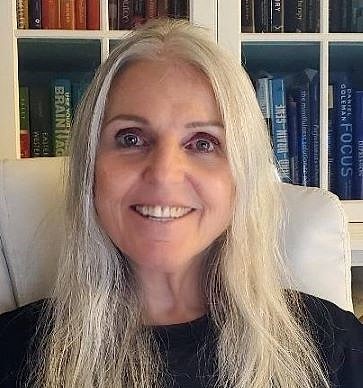Virtual Therapy is ongoing
In case you didn’t know, I’ve been offering virtual or online therapy for many years. Since the pandemic began I am using it every weekday with clients to wonderful results.
Check it out here and give it a try with me.
Is Journaling Really a Good Idea?
This morning, I found myself asking the Universe AGAIN “is journaling really a good idea?” after reading some random journaling prompts online. Here are some prompt examples:
What is one present you’ve always wanted? Who were your favorite relatives? What are your best/worst memories of school? How has art saved you?
Did you ever get into trouble? What was the saddest moment of your life? How would you describe yourself as a child?
What is your daily routine? What was the best night of your life so far? Are you proud of who you are? How would you like to be remembered?
What are you waiting for? Where did you grow up? What was the worst thing you ever did? Write a love letter.
Now go back over them to notice where your thoughts and mind have to go in order to answer the prompt. Mark down a P for Past, F for future, and N for now or the present after reading each one. Go ahead…. 🙂 Then tally the categories.
My tally is 8 for the past, 2 for the future and 3 for the present or now. I think this list represents what I find most prompts are like these days. Right? And yet they lead your mind mostly backward into the past, yet your power, your agency, to do anything is in the present. If you journal about the future, you have only now to do anything that may or may not affect your future. Dreams without action are imagination, not plans. I’m all for exercising your imagination, but staying there can be a form of procrastination.
So, is journaling really good for us? I think it all depends on the purpose and focus you bring to it. There are as many reasons to journal as there are methods.
Dr. James Pennebaker has conducted many studies on the power of journaling for healing and even overcoming psychological distress and trauma. He’s authored books for the public, the most recent being “Opening Up by Writing it Down” and his most famous book is “Writing to Heal.” I use his methods with my clients, and have for many years because I’ve seen how much it helps them.
Another major academic journaling expert is the late Ira Progoff.
I took Progoff’s journaling workshop many many years ago when it was somewhat novel to both the psychological field and the public. The essence of his “Intensive Journal method” was personal development, through a non-analytic, integrative system to bring forth and interrelate the contents of an individual life. Progoff wrote two books describing the method: At a Journal Workshop and The Practice of Process Meditation.
Today we have women, often leaders in journaling, that followed from the works of the men above, and women who have been keeping diaries over the centuries before us. They who could write and read put their thoughts on paper and even cloth. Some of the leaders, authors and promoters of journaling for more recent decades are Kathleen Adams, who started a certification program for using journaling for self-discovery and/or healing, Christina Baldwin, Louise DeSalvo, Beth Jacobs, PhD, Lucia Capacchione, PhD, and Lynda Monk, MSW, head of the International Association for Journal Writing. (IAJW.org, check it out)
So why then, with all of this evidence both academic and anecdotal, am I asking if journaling really a good idea? I ask this specifically when I see the list of prompts that draw people into their past, especially when focused on digging up unmet desires or miserably memorable points in their life. The brain fires up that old well-worn pattern and subsequent habit of thinking that brings their mind, body and mood into doom and gloom, anger, fear, unworthiness, apathy, or whatever the emotion is that is associated. Without the right setting, i.e. a class, discussion group that offers support, or a therapist, you could be worse for it, not relieved.
So what to do instead when no group or counselor is around- focus on the present when you journal. Write about how you are feel at that time and what’s occured to stimulate that feeling or thinking or action as a result. Also, understanding what you feeling, thinking, doing right now keeps your mind from going backwards and missing the present.
When your personal private journaling is in present time try to use your senses to expresses the experience you are having now. Write about what you see, hear, smell, taste, touch, and what’s going on in your physical or spiritual body to add to your journaling entry. Done mindfully, I recommend this approach when you are journaling alone.
Let’s go back to those prompts and use them as examples. I would place numbers 8, 10 and 15 square in the present. Numbers 5 and 7 have potential, if answered in the present tense about your present experience of them.
Take for example, “How has art saved you?” If you no longer engage in art then your response would not be relevant to your current life. If glancing at the prompt triggered memories so that you are stimulated to reconsider how art could be beneficial today and therefore worth exploring further, go for it from that angle. Better yet, view or make some art, and write about the experience you just had or while you’re having it. You can write words or sensations that enter your experience and later expand on them when you’re done creating. Labeling your experience with a word or two helps clear your mind and open it up to the new moment, so it’s a good idea to do this when your mind is looping on one thing.
I’d love to hear your thoughts! Please share in the comments.
Finally, I am teaching my one afternoon journaling workshop again on Saturday, Oct. 12, 1-4 PM in Ventura, Meditate on Paper.
How Sleep Detoxes your Brain
Recent public news coverage is talking about the connection between getting enough deep sleep and Alzheimer’s Disease (AD). I wrote this blog in January 2018, and am reposting it because it is such an important piece of the AD picture. No one cause of AD has been found, not even the gene or evidence of tangles and plaque is enough to be a certain determinative cause of the disease expressing itself , and yet, AD is affecting millions of people and growing each year. Lifestyle seems to be the place where changes make the biggest difference to occurence, growth and impact. Lifestyle consists of sleep, food and drink/alcohol choices, social life, spirituality, exercise, and de-stressing are the currently studied lifestyle choices.
Your brain, like your car, needs a good wash, a detox, to remove old or diseased gunk like molecules, cell, and waste that’s accumulated in your brain tissue and networks.
You’re probably aware of the detox your body movement that’s been raging for the last few years. The proponents of it, I’m not one of them, believe that by eating starkly little for a brief period of days or weeks, and then only particular foods, supplements, and drinks, you will be able to reset it your body and start afresh.
Also like your car, your brain cells produce pollution as they convert food into energy to move, create, speak, see, hear, taste, touch, smell, think and so forth. The car wash for much of your body’s waste is the lymphatic system, but it doesn’t run through the brain. This would leave the brain vulnerable to disease were it not for the brain’s own car washing system, the glymphatic system, which was recently discovered.
How the complex glymphatic system operates is still being researched and understood, but they believe it declines with aging. Researchers hypothesize that this system may be one key to preventing degenerative diseases like Alzheimer’s.
How you can support your glymphatic system to get the most efficient and effective results
You’ve likely heard what I’m about to list before. Take note of that fact and seriously consider giving them a priority in your life because they keep coming up as pillars of a healthy body and mind:
- Get the amount of sleep YOU NEED. More on how this works with your toxin cleaning glymphatic system below
- Eat a diet that is rich in healthy fats, vegetables, and foods high in antioxidants, which include certain berries, nuts, beans and vegetables. For a list of the foods and which antioxidant(s) they are high in, check out this informative chart.
- Maintain a healthy blood pressure level – Video
- Regular exercise, moving around more often in more ways. I love this saying “when you rest (too much), you rust!”
Why Sleep is so important for the detoxing your brain
Unlike car washes that are open during the day and closed at night, your glymphatic system washes away waste and toxins at night while you are sleeping.
Brain cells “mop up diseased and damaged bits of protein and metabolic waste.” Glial cells support and surround brain cells (neurons). They are thought of as-as nursing cells like a nurse is to a doctor. They control the glymphatic flow when you sleep by increasing the space between the neurons by shrinking themselves. With more space, the system’s fluid can push out more toxins and unwanted molecules through the network in the brain tissues and replace it with clean cerebrospinal fluid. Then the lymphatic vessels that surround the brain receive the waste and take it from there. *
Are you a back or side sleeper? Animal studies show that the fetal position is the best choice for the cleaning process, and the left even better. But most important is that you get enough quality sleep at night, continuous sleep, unlike naps.
Sleep helps memory retention
Sleep is also a powerful aid for memory retention. It’s during continuous sleep that your brain sorts, selects and stores what was most important that day and lets the other go so to make room for new input the next day. Sleep clears your mind, have you noticed?
College students who napped before a test did significantly better on the test compared to students who studied right up to the end. I can attest to this myself as I took this finding to heart when taking statistics classes.
Changing your sleep pattern
If sleeping enough and well is not happening for you, don’t turn to sleeping pills. Check out natural aids at your health food stores, herbs, teas, drops. Also, develop a sleep routine and time that doesn’t vary much from night to night and get up at the same time. This routine is called sleep hygiene, and it helps more than you might think.
Is it time to mindfully discover your best sleep routine? It’s a process, Changing your sleep pattern doesn’t happen overnight (no pun intended but I’ll take ). Start to change the time you go to bed in 15-minute increments, letting yourself adjust before moving to the next increment. Use the same step process for when you wake up. Reading before bed is shown to be far better at helping you sleep than watching TV, your phone’s face or the computer. Have a dark room with blue lights from tech stuff off. Place your phone far away from your head.
Let me know what you think in the comments. Wishing you sweet dreams!
* Cleanse your Brain by Selene Yeager in AARP Bulletin, December 2017, p. 23 This article sourced the information about the glymphatic system and detoxing the brain. There is no online url to include here, unfortunately.
This article, How to Detox your Brain, was first posted on KimberlyWulfert.com on the blog Integrated Wisdom
How Does Mindfulness Heal Emotional Distress
How does mindfulness heal emotional distress?
The practice of mindfulness teaches you a different way to relate to your thoughts, feelings, and emotions. The key is in learning to approach and acknowledge whatever is happening in the present moment, as it arises, AND setting aside your lens of judgment, and I add, analysis. This will strengthen the connection, which will form the habit or increase its likelihood of manifesting with the smallest of triggers.
Instead, simply be with whatever comes up rather than avoid, judge, or try to fix it right away. It’s the mind’s attempt to avoid, distort, criticize, numb-out or embellish that fuels the distressed mood.
If you don’t curtail or stop the looping, the thoughts will go into overdrive and bad emotions won’t be far behind. I’m a failure,” “I can’t do anything right,” “I’m weak,” “I’m worthless.”, and on and on the negative and critical self judgments will flow and influence your viewpoint, decisions, behavior and emotions.
In essence, you can get stuck in habitually relating to your life or a problem, and to your emotional reaction to the problem. Habits form very easily and quickly in your brain and memory. Try this tool the next time you feel the looping. The sooner you can stop it the better. You can use this mindful intervention many times a day,or in an hour until you have snapped that habit.
Focus your thoughts on your breathing, or as you breathe, your chest moving up and down, in and out. As negative, worried, anxious thoughts or thoughts of the past come to mind, let them float away like a cloud does in the sky. No analysis or judgment, just let go of the thought and any feeling that’s piggybacking on it. Come back to your breathe and repeat as necessary. +
Over the days, weeks, and months of repeating this new way of being with yourself, of detaching, and letting go of habits, it will change how your mind operates.
Try it! It’s not always easy, but that’s because habits are hard to change physiologically in your brain. It takes repetition to learn a new skill to replace the old skill. You can do this!
24/7 Crisis and Suicide Phone & Online
Bookmark this page of 24/7 crisis and suicide phone numbers, chat lines by text and online, and websites of non-profits to contact when in crisis, need to talk or need support and information.
This suicide hotline support: 1-800-273-TALK (8255) and the chat line https://suicidepreventionlifeline.org/
Please call the hotline if you or someone you’re with is talking or thinking about suicide as an option. They will help you think it through and find options. This hotline is from the National Suicide Prevention Lifeline, a free service.
One of my first counseling volunteer jobs as an undergraduate was at a local suicide prevention non-profit. I received terrific training from dedicated compassionate people of all ages. They really do care and want to help you.
Warning signs of potential Suicide or suicidal thinking
Sexual abuse, assault and rape hotline– talk line- 800-656-HOPE and the chat line is on their website https://rainn.org/
Confidential, private, trained listeners who you can share your experience with no matter how long ago it may have occurred. This is the place to begin or use in a crisis moment or when you need to talk about it more deeply.
They also offer affordable or non-fee-based referrals such as legal, psychological, medical as well as training and policy consulting for orgs and non-profits. RAINN is the nations largest anti-violence organization.
Veterans Crisis Line –1-800-273-8255 (press 1), online chat, by texting 838255, or use their website chat https://www.veteranscrisisline.net/ This is for veterans and service members, National Guard and Reserve, and their families and friends. This is confidential with highly trained responders who are often veterans themselves.
For veteran’s signs of suicide crisis, and a self-quiz go here https://www.veteranscrisisline.net/education/signs-of-crisis
National Alliance on Mental Illness They don’t offer a crisis line, but here is where you can get detailed guides, support, information, online training for friends and family of people suffering mental illness, and a special section devoted to veterans. https://www.nami.org/#
LGBTQ crisis line United States –1-877-565-8860 and Canada 1-877-330-6366
Gay, Lesbian, Bi-Sexual and Trans Crisis line 1-888-843-4564
Monday – Friday 4 p.m. to 12 a.m. ET
Saturday 12 p.m. to 5 p.m. ET
Youth Talkline- Teen to 25
1-800-246-7743
Monday – Friday 4 p.m. to 12 a.m. ET
Saturday 12 p.m. to 5 p.m. ET
GLBT National Help Center provides telephone, online chat, and email peer-support. They speak with callers of all ages about bullying, workplace issues, HIV/AIDS anxiety, coming out, relationships, safer sex, and more. They also have a massive resource database for social and support groups, gay-friendly religious organizations, sports, leagues, student groups, and more.
More sources for LBGTQ listed here.
For any type of crisis call or text 24/7/365 Crisis Hotline
Call: 1 (800) 273-8255
Text: “ANSWER” to 839863
Making Mindfulness Make Sense
Making mindfulness make sense isn’t easy even though it’s not the least bit complicated. The thing is, it doesn’t lend itself to words. It has to be experienced because mindfulness is a state of being. It’s not a thought, or a feeling or a doing. It’s being.
So what’s the big deal about being mindful? You get to live your life out-loud, fully entrenched in what comes through your senses and intuition and know what you are experiencing as you are living it. It’s also brings clarity and simplicity into your life. A cluttered mind is not a mindful mind ins spite of the word being mindful[l].
When we bring our attention to being mindful at various times through the day we train our mind to become more aware and more comfortable and desiring of being aware. When people are anxious and depressed they shut down and shut out their environment, senses and body sensations to a large degree in order to feel safer. But it doesn’t work that way and they end up missing a lot of wonderful experiences within and without by doing that.
In my class Group meditation and Mindful Living I teach various ways of being mindful which are states of being such as in gratitude and experiencing compassion toward themself. I’m teaching this class in my office this summer and through the City of Ventura in the Fall. One of the books I draw from for the class is titled Urban Mindfulness. I’d like to share how Jonathan S. Kaplan, PhD, defines mindfulness because he points out both ends of the continuum of attention or consciousness. And I quote:
- Noticing your thoughts, feelings and actions without judgement or criticism
- Observing what’s happening around you
- Being fully aware of your senses moment to moment
- Living in the here and now without resorting to old patterns and automatic reactions
- Exercising acceptance of your own experience whether good, bad, or neutral
I hope you find this blog post clarifying for you. I’d love to have you in the next class where you will also learn how to meditate for your mind, body, and brain health. The next class will be on Thursday evenings from 6:45 to 7:45 or 8PM. It will be in Ventura at my office and will begin once we have enough people, and therefore energy, to make it easier and faster for you to experience meditation’s stillness and wonder.
Contact me if you’re interested. Also, sign up for my email list in order to receive class notifications. Pre-registration required and this class is $55.00 for the 6 weeks.
Writing Mindfully: a Practical Application
Writing Mindfully: a practical application for everyday living in a mindful manner.
I read a book recently that I’d like to recommend to you, especially if you like to write or are a writer. Even if you’re not a writer, this book gives a practical evidence of a living mindful. This book is, Fearless Writing, how to create boldly and write with confidence, by William Kenower.
Kenower speaks about how to BE a writer, be at writing, be in writing and be in your life for 225 pages. This is not a how to write book, but if you can’t get yourself to write, then the how-to or craft of writing really doesn’t matter much. Here is the review I put on Amazon:
I found reading this book both stimulating and soothing to my writing soul. I enjoyed and resonated with his conceptions about writing and writers. I am sincerely impressed that he could write an entire book about the mindfulness of writers and writing without ever using the word mindful! He escaped the overused commercialization this word is today sadly subjected to. In doing so, he bypasses preconceived notions or total dismissal readers can have about what mindful writing and living means and how it shows up. Bravo Bill!
Throughout the book, Bill discusses the typical, not to imply unimportant in any way, just the usual areas many writers find to be obstacles or stressors they encounter in achieving their desire to write and or publish.
The bottom line I think Bill is telling , and shows us with personal stories and those of his students and colleagues, is that being a successful and satisfied writer is an inner choice of ongoing decisions on where to place your focus of attention.
I definitely recommend reading this book. I will likely refer back to it or the highlights I’ve noted, for comfort, regaining clarity, and staying focused when my productivity needs prompting.
My clients often use expressive writing techniques, and others, to work through their emotional pain, disillusionment, and confusion. Even those who have never written or journaled, relief and insight often show up to light their way and shape their understanding of themselves. This empowers them and builds their strength to keep going.
On page 138, in the chapter called “How thought works,” Kenower writes this:
This is the moment you understand your power. This is the moment you understand your role in your life and how to live and write on purpose. You are exactly like a hero in your favorite story. The hero is always brought to his knees. he always reaches a place of hopelessness, fatigue, and despair, a place where he believes he has no power and no options, and yet it is always from that depth of darkness that he understands how to find the light. Indeed, he needs that darkness to find the light himself rather than wait for a capricious authority to bestow it.”
Another name for this passage in a life might be the dark night of the soul, one you are most likely familiar with already. We all have them. They are seemingly the worst of times, but they are bridges if we process them, using it to gain awareness and understanding on a much higher or deeper level than we could before. It can kick start our conscious raising and head us in a new better direction than we’ve been headed previously.
Kenower is not doing therapy in this book, but shows that writing mindfully can be a therapeutic pathway. This is my opinion, he doesn’t state it as such. I read this book very slowly as it’s a rich read. So i read several pages each day until I was done. I highlighted like crazy and took notes of really important parts that meant something to me. He is an authentic and personal writer, making this book enjoyable on several layers.
I’ll end with another quote from the book on page 121 in the chapter Finding Time to Write:
…if you look upon writing as a practice- meaning something at which you gradually improve and are not expected to be perfect at every time you attempt it- doubt, procrastination, and fear are no longer evidence of your inescapable limitations, but indicators of where your attention has wandered.
Alcohol Increases the Risk for Dementia

courtesy of pubs.niaaa.nih.gov
A recent study concerning alcohol use and the brain came to my attention because of this headline – Heavy Drinking Strongest Modifiable Risk Factor for Dementia.* The analysis of 30 million people admitted to hospitals in France over six years, shows that “over half those with early-onset dementia had a history of alcohol problems.” A history of alcohol use disorders showed the risk for dementia was three times higher than those who did not reach that clinical diagnosis. Of the 30 million records reviewed , with 80% over the age of 60, there were over one million people with dementia, and 945,000 people with alcohol use disorders.
It’s not commonly known that heavy alcohol consumption is a major risk factor for all types of dementia, but it is, and it is particularly a contributor to early-onset dementia, which means under age 65 but significant symptoms can manifest in the fifties.
Another study looked at how alcohol effects brain development in adolescents.** The brain continues to develop after birth to age 25, so adolescents are about two-thirds of the way done. When teens and young adults drink a lot of alcohol it effects their brain’s developing structure, dendrites (each a base of communication between neuron cells), and even changes their genetics. The hippocampus, the center of memory and learning and an important part of our cognition, shows long-lasting effects from consuming heavy alcohol in adolescent rats, and clinical studies of human adolescents who drank “early and consistently across the college years have some deficits in learning and memory.”**
What heavy consumption is, isn’t the same for everyone due to differences in body size, weight, gender, metabolism, frequency, consistency, and other factors in particular to a person. But drinking many alcoholic beverages a day constitutes heavy drinking for anyone. The healthy amount recommended by the CDC if drinking alcohol daily, for adult females is one drink and two for adult men, and it’s the same for beer, wine or liquor, 12 oz., 5 oz., and 1.5 ounces of 80 proof respectively, and 8 oz. of malt liquors. This is only for those persons who can safely drink, meaning they are not addicted, an alcoholic or substance abuser.
In recent years you may have heard that drinking small amounts of alcohol regularly can be healthy for some people. But heavy drinking is what this study of 30 million people in France focused on and their conclusion was that alcohol may be behind the ever increasing prevalence of dementia worldwide.
The lead author of this study, Dr. Michael Schwarzinger, MD, from the Translational Health Economics Network in Paris, France, said “If people are consuming more than a couple of alcoholic drinks a day, they could be putting themselves at increased risk of dementia. Our results suggest that one of the best things you can do for brain health is to cut down on your alcohol intake.”***
Breast cancer is associated with alcohol use, even light use, and we know how much the incidence of this has risen in recent years in the US. I have listed three easy to read overviews of these studies in the sources below with their links for you if this is of interest. ****
The points made in this article may upset some of you reading this information for the first time. That wasn’t my intention. My intention is to present the very important information that we can modify the chance of getting dementia and breast cancer by drinking only light amounts of alcohol or none at all. Please forward this information to anyone who you think may benefit from knowing this. And if it applies to your life, take action now to reduce your risk. This includes eating well, sleeping enough and physical exercise which help your brain function well better.
Sources:
* Medscape, Feb. 20, 2018, Heavy Drinking ‘Strongest’ Modifiable Risk Factor for Dementia, by Sue Hughes (of Medscape Medical News) published online – https://www.medscape.com/viewarticle/892918
**Medscape, Feb. 20, 2018, Dementia for Alcohol-Related Brain Damage?, by Megan Brooks ( of Medscape Medical News) published online – https://www.medscape.com/viewarticle/892867
*** Medscape, Feb., 20, 2018, Heavy Drinking ‘Strongest’ Modifiable Risk Factor for Dementia, by Sue Hughes published online – https://www.medscape.com/viewarticle/892918
****Science Daily, Fred Hutchinson Cancer Research Center. “Just one alcoholic drink a day increases breast cancer risk, exercise lowers risk.” ScienceDaily, 23 May 2017. ; Research Society on Alcoholism. “Even light drinking may increase breast cancer risk.” ScienceDaily. ScienceDaily, 1 June 2016. ; and Plataforma SINC. “Alcohol intake increases the risk of breast cancer.” ScienceDaily. ScienceDaily, 21 October 2015.
Magnesium Relieves Anxiety and Insomnia
Magnesium Relieves Anxiety and Insomnia symptoms.
Our bodies use magnesium in more than 300 metabolic reactions. A lack of magnesium can alter electrical activity in the brain. Stress depletes the magnesium in your system. Magnesium helps maintain normal muscle and nerve function, steadies heart rhythms, and supports our immune systems. Additionally magnesium regulates blood sugar levels, blood pressure, and enhances metabolism.
Symptoms of magnesium deficiency may include agitation and anxiety, restless leg syndrome, sleep disorders, irritability, nausea and vomiting, abnormal heart rhythms, low blood pressure, confusion, muscle spasm and weakness, hyperventilation, insomnia, agitated sleep and frequent awakening, poor nail growth, and even seizures.
Magnesium is considered the “anti-stress” mineral and is a natural tranquilizer.
Studies suggest that if magnesium deficient people simply add a magnesium supplement to their diet, many health problems, including sleep disorders, could be resolved without expensive medications.
Studies suggest that magnesium deficiency may also be one of the causes of insomnia, a condition that is experienced by an estimated one out of two Americans. When your magnesium levels are low, your nervous system gets out of balance, and you feel on edge, naturally resulting in tightening muscles. Although we expect sleep to relax us, when magnesium levels are low, it may not.
Magnesium works with the calcium in our bodies to help our muscles first contract and then relax again. Muscles contract with the help of stored calcium. Magnesium is the mineral that helps them relax. Without enough magnesium, muscles are unable to relax fully after contraction and nighttime muscle cramps develop, causing another sleep disruption.
Many modern diets include highly processed foods and these processes deplete magnesium. Eating a balanced diet can help make sure your body gets the magnesium you need. Magnesium-rich foods include kelp, wheat bran, almonds, cashews, blackstrap molasses, and brewer’s yeast. Foods that are high in fiber are generally high in magnesium. Dietary sources of magnesium include legumes, whole grains, vegetables (especially broccoli, squash, and green leafy vegetables), seeds, and nuts (especially almonds). See the source link below for more foods to eat.
A temporary or chronic deficiency can pop up from heavy periods, gastrointestinal disorders , prolonged stress, diabetes, diuretics, too much alcohol, salt, coffee, soda, excessive sweating and hyperthyroidism, to name a few.
Taking too much magnesium can have side effects including nausea, stomach upset and diarrhea. There are precautions and drug interactions, read the National Insitutes of Health source listed at the end of this post. Check with your doctor if necessary to be safe.
Recommended types include magnesium citrate, magnesium gluconate, and magnesium lactate, all of which are more easily absorbed into the body than other forms. Dosage depends on many things including your age and gender. A nutritionist shares recommended amounts of high magnesium foods here
A magnesium deficiency may or may not be contributing to your anxiety and insomnia, but it’s worth a try to find out, right? If supplements aren’t for you, start eating more magnesium rich foods daily to see if that change alone will settle your symptoms.
You might also check out this post Eating to Counter Anxiety and Fatigue I wrote for my weight loss blog.
If you’ve tried magnesium and found it works for you, please share your experience in the comments section.
Namaste,
Dr. Kim
- SOURCES: University of Maryland Medical Center (This was my original source. Unfortunately the page is no longer here http://umm.edu/health/medical/altmed/supplement/magnesium
- Dr. David Pearlman, 5 Foods that are High in Magnesium
- National Institutes of Health
- Dr. Axe lists the top 10 magnesium rich foods and their proven benefits
- HealthLine
Handling Anxiety Better
Most of the clients I work with suffer anxiety to some degree. Also, anxiety is part of depressive disorders although it may express more as irritability or worry than the nervousness and physical manifestations usually associated with anxiety. However anxiety or panic shows up, its miserable as anyone whose ever felt it knows.
I tell my clients to do two things when they first begin to feel an anxiety attack or anxious. First, to focus their attention downward to their feet in order to ground themselves into the earth. I ask them to feel the energy coming up from Mother Earth into their feet and legs, stabilizing them and offering comfort as mothers are known to do.
Secondly, to think, to pay attention to whatever is around them that enters through one or more of their senses. For example, noticing the color blue of the sky at that moment, to identify different scents in the air, to listen to all of the current sounds or recall their last meal as best they can. I get them into the front of their mind, specifically to the prefrontal cortex area because when they are using that part of their brain, their limbic system or threat warning system takes second bill and turns off.
Recently I came across an experiment that supports my line of reasoning for handling anxious feelings and emotions, and helping them fade away instead of strengthening it as so often happens to people who are frequently anxious.
The neuropsychology study at Duke followed from a previous one where the researchers found that people with brains that demonstrated a “high response to threat and a low response to reward are at more risk for developing anxiety and depression over time” *
In the current study they wanted to see if they could find factors that would help people not develop these problems. They focused on the dorsolateral region of the prefrontal cortex, that is known as the executive control center. Think of what an executive does and you’ll see how it got its name. They plan, organize, focus, handle complexities mentally, and inhibit undesirable social behavior and regulate emotions.
What they found was that people at risk for an anxiety disorder (in this study they were 120 undergraduate students) lowered their risk for developing it if they had higher activity in their dorsolateral prefrontal cortex. They suggest a strategy that directly addresses the anxiety, mood or depression (such as therapy) and improving the individual’s general cognitive functioning.
The brain’s executive function area takes over when you deliberately focus and think, and emotions let go or you feel less emotional. Anxiety is emotional and physical sensations. Just don’t think about what you are anxious about or that you are anxious at that point in time though as it won’t help, but do think about it later and process it to build your strategy.
Instead, develop and practice a strategy that keeps your mind involved, rather than wandering around going into the past or worry about the future, by practicing the basic principles of mindful living:
being present,
paying attention to what you are doing as you are doing it or paying attention to what’s going on around you in present time,
having an open and curious mind
that is non-judgmental
and kind ( I threw in a little self-compassion at the end :))
Please join the conversation with comments, thoughts, or questions.
* Source: Duke University. “Brain activity buffers against worsening anxiety: Activity in brain’s thinking and problem-solving center linked to avoiding anxiety.” Science Daily, 17 November 2017. www.sciencedaily.com/releases/2017/11/171117141743.htm












